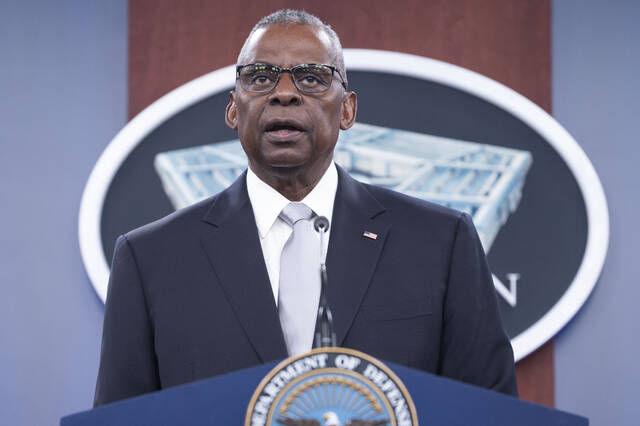Defense Secretary Lloyd Austin took responsibility for not notifying the White House when he was hospitalized at the beginning of January, an important first step in rebuilding trust with President Joe Biden, Congress and the American people.
While Austin’s desire to keep his medical situation private is understandable, this was a severe breach of protocol at a time when escalating global conflicts demanded more robust and timely communication. The country, and especially our service members, deserved better.
According to the Pentagon, Austin underwent surgery Dec. 22 to remove his prostate, and complications forced him back to the intensive care unit at Walter Reed Medical Center on Jan. 1.
At that time, per U.S. law, he was required to report to the White House that he would be absent from his duties and identify who would be serving in his place. But even Austin’s second-in-command was reportedly left in the dark until Jan. 2. The president wasn’t formally notified until Jan. 4.
One might chalk that up to a procedural oversight were it not for the fact Austin is second only to the commander-in-chief in leading the U.S. military. His absence occurred at a time when thousands of service members were deployed to crisis points around the globe.
That’s to say nothing of the various other conflicts around the globe in which the United States is a party.
Austin’s absence occurred only weeks before a drone attack against an American base in Jordan killed three service members and injured at least 34 others. Had that happened on Jan. 2 rather than Jan. 28, how would the Pentagon have responded with its top official AWOL?
Every Cabinet-level secretary is buttressed by deputies and associated staff members who help ensure these massive federal departments operate as effectively and cohesively as possible. And while those in the Defense Department displayed the utmost professionalism amid this uncommon situation, Austin let them down by not following procedure when it was clear he wouldn’t be able to carry out his duties.
Speaking to the media, Austin took responsibility for his actions, saying, “We did not handle this right; I did not handle this right. I should have told the president about my cancer diagnosis. I should have also told my team and the American public, and I take full responsibility.”
In explaining his absence, he reasoned the president had enough on his plate without worrying about his defense secretary’s medical condition. But federal law requires notification in these situations so the president can make informed decisions. (Austin did just that, according to a Pentagon statement, when it was announced Sunday he was hospitalized following symptoms pointing to an “emergent bladder issue.”) By withholding that information, it made Biden’s already difficult job even harder and, as the Jordan attack shows, could have compromised the safety of American troops abroad.
The Pentagon inspector general has announced plans to investigate the circumstances surrounding Austin’s absence, and Austin has pledged to cooperate. The House Armed Services Committee has also invited him to testify this month.
Biden says he still has confidence in his defense secretary. Rebuilding trust with service members and the general public will be a taller ask for Austin in the days and weeks ahead.
— The Virginian-Pilot








